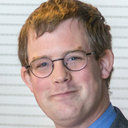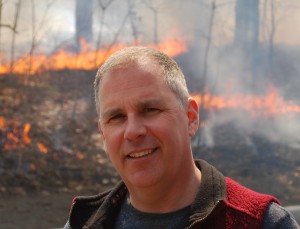Invited Speakers
Speakers
|
Dr. Peter Groenemeijer |
Title talk: Severe convection in Europe: climate modelling and forecasting Bio/Synopsis: |
|
|
|
|
European Severe Storms Laboratory | ESSL
|
|
Dr. Alan Gerard |
Title talk: An Overview of Severe Weather Research at the National Severe Storms Laboratory Bio/ Synopsis: |
|
|
|
| Chief, Warning Research and Development Division at NOAA National Severe Storms Laboratory
|
|
Dr. Julian Brimelow |
Title talk: The Northern Hail Project: A renaissance in hail research in Canada Bio/ Synopsis: Brimelow is a convective weather expert with 20 years of experience studying severe thunderstorms, hail and high-impact hydrometeorological events. Most recently, he worked to improve the detection and prediction of severe hail using radar systems and computer models as a meteorologist for Environment and Climate Change Canada. Previously, Brimelow held posts for the South African Weather Service and the British Antarctic Survey. |
|
|
|
|
Northern Hail Project (NHP)
|
|
Dr. David Sills |
Title talk: Tornadoes and Derechoes – Event Data and Climatologies in Canada Bio/ Synopsis: Dr. David Sills earned his Ph.D. degree in Atmospheric Science from York University in Toronto in 1998. He served as a Severe Weather Scientist at Environment and Climate Change Canada for more than 20 years before becoming Executive Director of the Northern Tornadoes Project with 澳门六合彩开奖预测 Engineering in 2019. Dr. Sills has led or co-authored 41 journal publications and 36 conference papers, and serves as Associate Editor for the Canadian journal Atmosphere-Ocean and the American journal Monthly Weather Review. In 2017, Dr. Sills was awarded the Rube Hornstein Medal for his contributions to operational meteorology in Canada. |
|
|
|
|
Executive Director of the Northern Tornadoes Project |
|
Dr. Devan Becker |
Title talk: Measuring Dependence Between Wildland Fire Ignitions and Sizes – Lightning and Person Bio/ Synopsis: Devan completed his BSc in Mathematics at Wilfrid Laurier University and his Master’s in Statistics/Biostatistics and Ph.D. in Statistics at the University of 澳门六合彩开奖预测 Ontario. His research focused on spatial point process modelling with applications to locations of forest fires as well as shot locations in professional hockey games. His postdoctoral research was also at 澳门六合彩开奖预测, but in the department of Pathology and Laboratory Medicine. His research focused on characterizing the uncertainty in genetic sequences as well as estimating proportions of variants of concern of the virus that causes COVID-19 using sequencing data collected from wastewater. His next position was at the Public Health Agency of Canada, researching the effect of precipitation on the concentration of the virus that causes COVID-19, as well as continuing to develop models for variants of concern measured from wastewater. At his current position as a faculty member at Wilfrid Laurier University, he is further expanding his research into wastewater sampling of variants of concern by considering their spread through space and time as well as modelling the uncertainty around how we define the variants.
|
|
|
|
Wilfrid Laurier University |
|
Prof. Dan Johnston |
Bio/ Synopsis: Working for almost 20 years in wildland fire management, Dan has experience in wildland fire suppression, prevention, prescribed burning, fire science, emergency management, and policy development. Dan currently provides strategic planning advice to Ontario’s wildland fire management organization as the Strategic Planning and Risk Advisor. Dan began his career as a firefighter with the British Columbia Wildfire Service, and as a part of a Type 1 Incident Management Team in Ontario has managed large wildland fires across Canada. Dan also holds a Master of Science in Forestry studying wildland fire behaviour.
|
|
|
|
|
Aviation, Forest Fires, and Emergency Services, Ontario MNRF |
|
Dr. Aaron Stacey |
|
|
|
|
|
Aviation, Forest Fires, and Emergency Services, Ontario MNRF |
|
Dr. Mike Wotton |
Title talk: Assumptions and thresholds in wildfire modelling: uncertainty and its impact Bio/ Synopsis: Mike Wotton is a Senior Research Scientist with the Canadian Forest Service-Natural Resources Canada currently stationed at the University of Toronto in the John H. Daniels Faculty of Architecture, Landscape and Design. His research focuses primarily on developing models of fuel moisture exchange, fire ignition, spread and intensity that can be used to provide daily wildfire information to fire management agencies throughout Canada. Dr. Wotton works closely with fire management agencies from across Canada in the application of the results of his research into daily fire management operations and coordinates the CFS’s development of a next generation of the Canadian Forest Fire Danger Rating System. |
|
|
|
Canadian Forest Service/U. Toronto |
|
Kevin Potozcny, Yao Li, Parva Shoaeifar, Mahmoud Bagheri |
Title talk: Hazards in British Columbia: Observations and Lessons Learned Kevin, Yao, Mahmoud, and Parva are current PhD students in the Earthquakes and Tsunami Hazards Research Group, participating in the Multi-hazards Risk and Resilience Collaborative Graduate Program at 澳门六合彩开奖预测. |
|
澳门六合彩开奖预测 |
|
Dr. Sergio Sepúlveda |
Title talk: Landslide Hazards in British Columbia, overview and challenges Bio/ Synopsis: Sergio is an engineering geologist who studies the nature and effects of geological processes that may impact people and infrastructure, using engineering tools for their investigation. His main research interests are on the application of engineering geology and geotechnical analyses on the investigation of geohazards, both in the natural mountain environment as well as in engineering works such as mining or energy projects and in urban planning. His recent research mainly focuses on rock slope stability, earthquake-induced landslides, debris flows and landslide hazard assessment in Cordilleran settings. The methods applied include strong fieldwork and laboratory testing components and the use of remote sensing tools as well as geographic information systems, slope stability and numerical modelling software. Other broad research interests include underground geomechanics, forestry impacts on slopes, seismic hazard and slope tectonics. |
|
|
|
|
Simon Fraser University |
|
Sujan Adhikari |
Title talk: The application of geological, geotechnical, and geophysical data to seismic microzonation in Metro Vancouver Bio/ Synopsis: Sujan is a Ph.D. candidate in Geophysics collaborative specialization in Multi-hazard, Risks, and Resilience at the University of 澳门六合彩开奖预测 Ontario working for Seismic microzonation work in Metro Vancouver, British Columbia. He did his master's in Geology at Tribhuvan University, Nepal, and a postgraduate diploma in Engineering Geology at ITC, University of Twente, Netherlands. He has worked at various consulting companies focusing on disaster risk management. |
|
|
|
|
澳门六合彩开奖预测 |
|
Dr. Steve Evans |
Title talk: Tsunamis and landslides – Comparative Geohazard Risk in British Columbia Bio/ Synopsis: Stephen Evans is interested in the occurrence and behavior of natural hazards , with a focus on catastrophic landslides, landslide dams, glacial hazards, and tsunamis. As an expert in hazard assessment and risk analysis of these phenomena, his research has taken him to many countries in Europe, North Africa, Asia, and the Americas (including Italy, Russia, Iran, Tajikistan, Algeria, the Philippines, Japan, China, Peru, El Salvador, United States and Canada). |
|
|
|
|
University of Waterloo |
|
Dr. Dan Frangopol |
Title talk: Risk, Resilience and Sustainability of Infrastructure under Multihazards Decisions regarding design, assessment and maintenance of infrastructure should be supported by an integrated risk-, resilience- and sustainability-based life-cycle multi-objective optimization framework by considering, among other factors, the likelihood of successful performance and the total expected cost accrued over their entire life. The primary objective of this keynote lecture is to present a life-cycle multi-objective optimization framework for risk-, resilience- and sustainability-informed decision making for infrastructure under multihazards including corrosion, earthquake and climate change. Several important performance indicators such as risk, resilience and sustainability necessary to be implemented in the design, assessment and maintenance of infrastructure under single and multiple hazards are introduced. Bridges and bridge transportation networks are used to illustrate the application of the proposed approach. |
|
|
|
|
Lehigh University, USA |
|
Dr. Babak Moaveni |
Title talk: Monitoring and Assessment of Infrastructure Using Sensor Measurements This presentation provides application of different monitoring approaches for performance and damage assessment of different structural systems using in-situ or remote measurements. The first part of my presentation is on performance assessment of RC buildings through a physics-based Bayesian inference approach using vibration measurements. In the second part, I present application of similar methods for assessment of an offshore wind turbine. In the third and last part, I show application of remote sensing and satellite imagery for global damage assessment of buildings. Bio/ Synopsis: Babak Moaveni is a professor in the Department of Civil and Environmental Engineering. He obtained his Ph.D. in structural engineering at University of California-San Diego in 2007. Moaveni’s main research interests include Bayesian inference and inverse problems, structural health monitoring, system and damage identification of civil structures, structural dynamics, earthquake engineering, uncertainty quantification, and verification and validation of computational models. |
|
|
|
|
|
Dr. Mustafa Gul |
Title talk: Crowdsensing-based Monitoring of Built and Natural Environments (CoMBiNE) Bio/ Synopsis: One of the grand undertakings of our modern age is to build smart, sustainable, and resilient cities that can be managed and operated efficiently while providing residents with a high level of safety and comfort. The path to realizing smart cities is inherently complex and multi-dimensional, involving various technological and social aspects, and it requires fundamental shifts in management of our infrastructure and energy systems and close interaction among different disciplines. In this context, this presentation will discuss some of Dr. Gül’s recent research effortsin developing smart, sustainable, and resilient cities and infrastructure systems. Dr. Gül will present a Crowdsensing-based Monitoring of Built and Natural Environments (CoMBiNE) framework for studying populations of infrastructure systems that capitalizes on the big data collected using the existing sensors and cameras within connected vehicles (and other systems).The talk will specifically focus on using smartphones in vehicles for drive-by monitoring of populations of bridges, using rear-mounted cameras for pavement assessments, as well as using in-vehicle cameras for assessment of wildland-urban-interface fire risk. Finally, future research directions toward achieving smart, sustainable, and resilient cities and communities will be outlined. |
|
|
|
|
University of Alberta |
|
Dr. Rosalind Warner |
Title talk: Disaster Risk Governance as a Guide to Canadian Policy Responses to a Global Health Emergency Bio/ Synopsis: Dr. Rosalind Warner has nearly 30 years of experience teaching and researching in the areas of international development, global environmental politics and Canadian international policy. She is the Contributing Editor of two books on Canadian Foreign Policy. She holds a PhD in Political Science from York University with specializations in International Relations and Canadian Politics, with a minor area of Peace Studies. As an educator and researcher, she has been motivated to advance environmental, social, and governance objectives in her professional and volunteer work. She is involved in a leadership role in local environmental groups, including the Okanagan Sustainability Leadership Council, the Okanagan Climate Hub, and Citizens’ Climate Lobby Okanagan Chapter. She is also a Research Fellow with the Earth System Governance Research Program, and a Board member of the Canadian Environmental Network. |
|
|
|
|
Okanagan College, BC |
|
Dr. Hanson Nyantakyi - Frimpong |
Title talk: How well do nature-based climate solutions address gender equity Bio/ Synopsis: Hanson Nyantakyi-Frimpong is an Associate Professor of Human Geography at the University of Denver. He received a Ph.D. in Geography from the University of 澳门六合彩开奖预测 Ontario, Canada. As a political ecologist, his academic research focuses on the human dimensions of global environmental change and sustainable agriculture and food systems. He has conducted long-term fieldwork exploring food and nutrition security, agroecology, gender politics, adaptation to climate change, and the nature and implications of vulnerability to climate change. He is a Contributing Author of the Sixth Assessment Report of the Intergovernmental Panel on Climate Change. In 2021, he received an emerging distinguished scholar award from the American Association of Geographers. |
|
|
|
|
University of Denver, Colorado |
|
Dr. Gordon McBean |
Title talk: Building Climate Resilient Communities – Social-Health-Policy Dimensions. Bio/ Synopsis: Dr. Gordon McBean is the Co-Director of the Centre for Environment and Sustainability and Professor in the Department of Geography at 澳门六合彩开奖预测 and president-elect of the International Council for Science. Recent and current projects include: Study of science-policy interactions generally and specifically in the context of Arctic climate; examination of weather storms, their impacts and their predictability; relationships between human health and weather; natural hazards research.
|
|
|
|
|
澳门六合彩开奖预测 |
|
Dr. Eliane Ubalijoro |
Title talk: Risks and opportunities to harness digitalisation for a sustainable planet Bio/ Synopsis: Éliane Ubalijoro, PhD, is the Executive Director of Sustainability in the Digital Age and the Global Hub Director in Canada for Future Earth. Her decades of experience span academia, science-policy and the non-profit and international development sectors. She is a Professor of Practice for Public-Private Sector Partnerships at McGill University’s Institute for the Study of International Development. Eliane is a member of the Impact Advisory Board of the Global Alliance for a Sustainable Planet. She is a member of Rwanda’s National Science and Technology Council and has been a member of the Presidential Advisory Council for Rwandan President Paul Kagame since its inception in September 2007. She is a member of the Expert Consultation Group on the Post COVID-19 Implications on Collaborative Governance of Genomics Research, Innovation, and Genetic Diversity. Éliane is a member of the African Development Bank’s Expert Global Community of Practice on COVID-19 Response Strategies in Africa. She is a member of the Capitals Coalition Supervisory Board. Eliane is a member of the Advisory Board of the Earth Leadership Program. She is a member of the Advisory Boards of ShEquity and Orango Investment Corporation. Eliane is on the boards of Genome Canada and the Crop Trust. |
 |
|
|
McGill University |
|
Dr. Yuyu Zhou |
Title talk: Implications of climate change for sustainable urban environments Bio/ Synopsis: Yuyu Zhou is an associate professor at the Department of Geological & Atmospheric Sciences, Iowa State University. His research interests lie in the applications of geospatial technologies including remote sensing, GIS, geovisualization, spatial analytic tools, and integrated assessment modeling to understanding the issues of urban environmental change under changing climate and the potential solutions. He has published over 170 papers in leading journals such as Energy & Environmental Science, PNAS, and Remote Sensing of Environment, and received over 20 grants from organizations including NASA, NSF, and DOE. |
 |
|
|
Iowa State University, US |
|
Dr. Ed McBean |
Bio/ Synopsis: Ed McBean is a Former Tier 1 Canada Research Chair in Water Supply Security and now University of Guelph Research Leadership Chair Professor, Water Security. In that context, he relies upon statistical interpretation of data, fate and transport of chemicals and pathogens in the environment, and risk assessment/ management, to determine how features of water supply risk may arise. Hence, there are dimensions of a number of features including climate change and fate and transport modeling as applied to water resources phenomena. In addition to the above, Ed also has extensive experience in waste management, and greenhouse gas emissions as contributory to global climate change. |
 |
|
|
U. Guelph |
|
Dr. Hamid Moradkhani |
Title talk: A Different Look to Hazard, Vulnerability and Risk in Extreme Events: The value of Crowd Sourcing, Data Assimilation and Machine Learning Bio/ Synopsis: Dr. Moradkhani joined The University of Alabama in January 2018 as Alton N. Scott Endowed Chair in the department of civil, construction and environmental engineering. Also, he is the founding director of the Center for Complex Hydrosystems Research comprising faculties and students across civil and environmental engineering, computer science, geography, mathematics, geology and business school. Prior to this appointment, he was a professor and director of Water Resources and Remote Sensing Lab in the department of civil and environmental engineering at Portland State University. Moradkhani is a pioneer in developing methods in data assimilation, machine learning, uncertainty quantification, risk analysis and harnessing data revolution, used in earth system science, engineering and other disciplines. He is a registered professional engineer with significant experience in design, management and operation of large scale hydrosystems. His research has addressed the grand challenges faced by water resources managers, stakeholders and emergency managers as how to be sure there is enough water to meet demands and protect the livelihood and properties against extreme events as populations swell and weather patterns shift due to changing climate. |
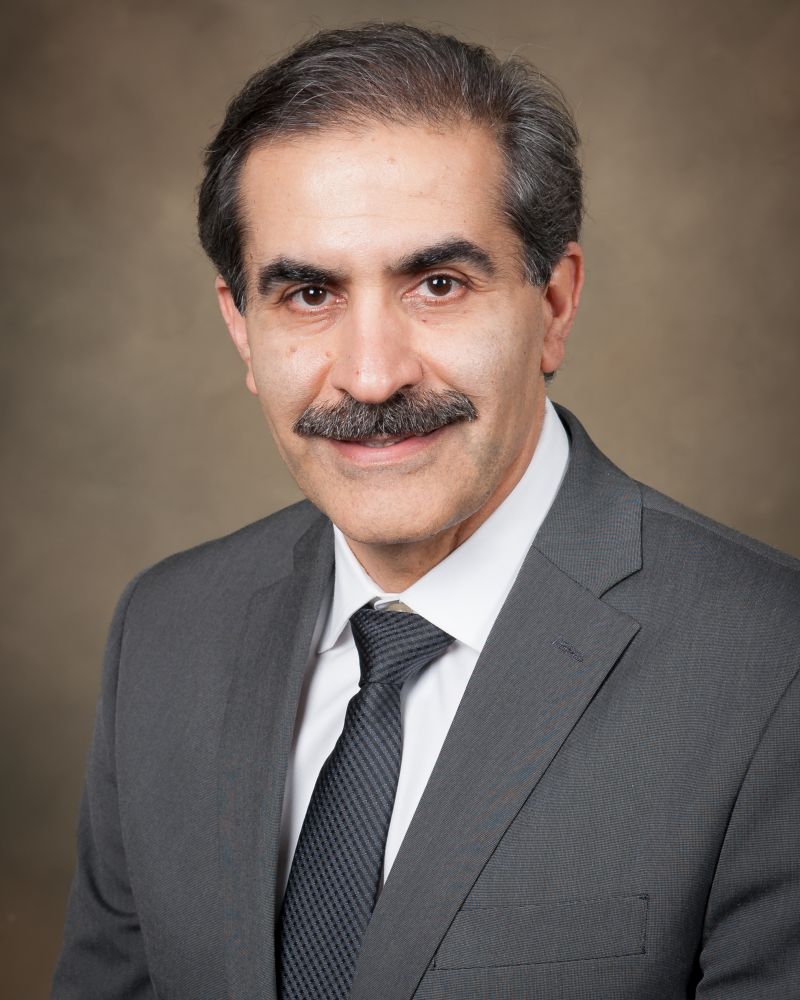 |
|
|
U Alabama |
|
Dr. Hamidreza Shirkhani |
Title talk: Future climatic data for infrastructure design Bio/ Synopsis: Dr. Hamidreza Shirkhani is a Research Officer in the NRC’s Sustainable & Resilient Infrastructure & Communities group in the Construction Research Centre. His expertise and research involves infrastructure resiliency, climate change impact studies and water resources engineering. Dr. Shirkhani serves as a CSA technical committee member for the development and updating Canadian standards, and he is an adjunct professor at the Department of Civil Engineering at the University of Ottawa, Carleton University and Queen's University, and is an Associate Editor for the journal Frontiers in Water. |
 |
|
|
National Research Council Canada - NRC |
|
Dr. Xuebin Zhang |
Title talk: Changes in extreme precipitation: past and future Bio/ Synopsis: |
 |
|
|
Environment and Climate Change Canada - ECCC |
|
Nick Martyn |
Title talk: Using Network Risk and Spatial Analysis to Predict Indirect Flood Damage: A Don River Example Bio/ Synopsis: Before founding RiskLogik, Nick held various command and staff appointments in both the Canadian and British Armies over 27 years of military service in Canada, UK, Germany, Former Republic of Yugoslavia and Afghanistan. From 2008 to 2011, he served as CEO of the Afghanistan Information Management Services (AIMS) where he oversaw the transition of AIMS from the United Nations to independent NGO status and transformed the organization taking them from a negative cash position to a peak of USD $9M revenue in 24 months. During that period AIMS delivered a world class international aid effectiveness management system (ANDMIS) to the Government of the Islamic Republic of Afghanistan while also modernizing the Land Management System and Mapping the Electrical Service in Kabul. |
 |
|
|
RiskLogik |
|
Markus Schnorbus |
Title talk: Interpreting Change in Peak Flow Design Values using Temperature Scaling Bio/ Synopsis: Markus Schnorbus joined PCIC in April 2009 and became Lead Hydrologist in July 2010. Prior to joining PCIC Markus was a Hydrologic Modelling Scientist and Forecaster with the BC Ministry of Environment, River Forecast Centre, where he was engaged in the analysis of observed climate and hydrometric data and the application of various hydrologic models for flood, drought and seasonal streamflow forecasting. He also recently led the implementation of the Variable Infiltration Capacity (VIC) macro-scale hydrology model to investigate the effects of mountain pine beetle and salvage harvest operations within the Fraser River watershed. During this time, Markus developed a clear and pragmatic appreciation of the hydrologic effects of climate change and variability. Markus possesses a sound knowledge of mountain and forest hydrology, particularly in the context of British Columbia, and has a strong understanding of the challenges inherent in applying hydrology models in this complex environment. Markus leads the effort at PCIC to quantify the direct and indirect effects of climate change and variability upon the various components of hydrologic cycle at the local and regional scale. |
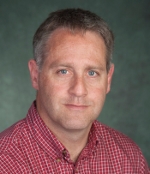 |
|
|
Pacific Climate Impacts Consortium - PCIC |
|
Dr. Raj Shrestha |
Title talk: Snow drought and its implications on streamflow predictability in a warming climate Bio/ Synopsis: A warming climate is leading to periodic occurrences of exceptionally low snowpack condition or ‘snow drought’ in cold-climate regions, affecting mean and extreme streamflow, and causing economic and ecological impacts. The first part of this presentation will focus on a categorical framework to characterize snow drought for a range of conditions in the historical and future climates, and application for river basins in northwestern North America under 1.0 °C to 4.0 °C global warming thresholds above the pre-industrial period. Future projections of highly heterogeneous patterns of snow drought across the river basins, and frequent and severe snow drought in the southwestern basins, will be discussed. The second part of the presentation will summarize our recent research on advancing the understanding of future streamflow predictability, as it becomes more dependent on less reliable meteorological forecasts, and less dependent on more reliable snowpack initial condition. An ensemble streamflow prediction system that combines GCM and hydrologic model projections and isolates the effect of snowpack will be described. Results showing contrasting patterns of future changes in mean and extreme streamflow predictability that arise from the differences in river basin characteristics and interactions of streamflow with snowpack, precipitation and temperature will be discussed. |
 |
|
|
ECCC |
|
Dr. Mohamed Ben Alaya |
Title talk: A new concept of max-stable vector to analyze and predict the probability of unprecedented climate extremes Bio/ Synopsis: Accurate estimation of the occurrence of extreme precipitation events exceeding the maximum observed values is necessary for many technical mitigation and adaptation procedures. A frequently used approach to solve this type of problem involves the statistical theory of extreme values (EVT). As a solution, classical EVT uses the max-stability assumption, which only holds under certain regularity conditions. Extremes in nature, however, are likely to be non-regular and dependent. Here, we introduce a new empirical concept of a local max-stable vector to analyze and characterize non-regular dependent extremes. We show how the concept can be used to design an extreme value analysis procedure that is specific to precipitation. We illustrate the approach at several locations in Canada by conceiving a procedure guided by observations but also leverages additional information about variation deeper in the upper tail than can be obtained from observations that derive from a large ensemble of CanRCM4 simulations. |
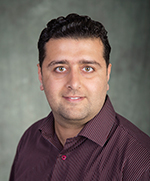 |
|
|
Pacific Climate Impacts Consortium - PCIC |
